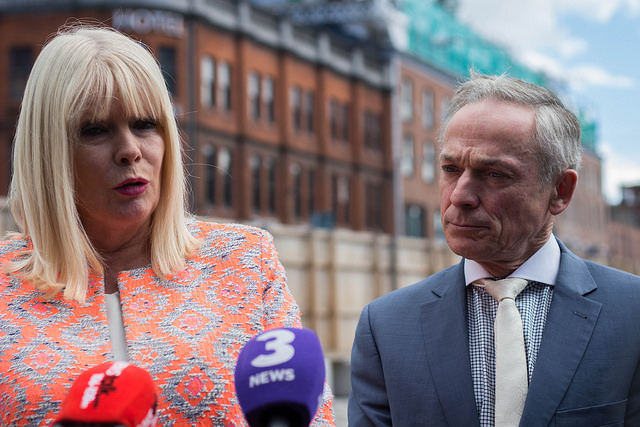With an aim of increasing access to higher education, the government unveiled today a €16.5 million initiative that will provide bursaries for third-level students from disadvantaged backgrounds.
This new programme aims to address the stark class divide across higher education and break down barriers of disadvantage by way of education. Funding will be divided between bursaries, support programmes and additional hardship supports with lone parents being prioritised.
In total, more than 2,000 students from underprivileged backgrounds will benefit from this programme over the coming three years. Funding bursaries worth €5,000 for 600 students will be provided over three years at a total cost of €6 million.
In a press statement, Minister for Education and Skills Richard Bruton spoke of “helping more students to fulfill their potential by staying in education longer, in helping to build our Republic of opportunity”.
He added: “Initiatives such as these have the potential to really help to break the cycle of disadvantage for many communities.”
Many of those set to benefit from this programme come from Ireland’s under-represented socio-economic groups. These include members of the Traveller community, people with disabilities as well as lone parents and students from ethnic-minority backgrounds.
In a press release, Mary Mitchell-O’Connor, Minister of State for Higher Education, commented: “The Review reinforces the clear returns for lone parents in participating in higher education, in terms of not only enhancing their socio economic circumstances, but also that of their children.”
The key emphasis of this initiative is to improve access to third-level education for single parents. A recent review commissioned by the Department of Education highlighted the difficulties faced by lone parents in accessing higher education programmes. This reform comes as part of a wider government initiative to increase support for lone parents in Ireland.
In a press statement, the President of the Union of Students in Ireland (USI), Michael Kerrigan noted that while the extra money allocation to the Student Assistance Fund is “welcome”, the fund “requires a total of €12million to meet the increased demand being placed on the fund by more applications each year”.
Kerrigan also stressed the need for further funding for other key supports within third level education: “USI is urging the Government to invest in other key supports like third-level mental health counselling, and to ring-fence €3m for student counselling and supports per annum.”
Individual third-level institutions will be able to identify students in need of financial support, in accordance with guidelines laid down by the Department of Education. Increased funding will also be made available for the introduction or expansion of university access programmes. Trinity Access Programme (TAP) is one of the most successful of these in the country.
Information released by the HEA has revealed that the percentage of students from disadvantaged backgrounds progressing to third-level education has increased, rising from 22 to 26 per cent. The percentage of students with a disability attending third level has also increased from seven to 11 per cent between the academic years beginning in 2012 and 2014.







